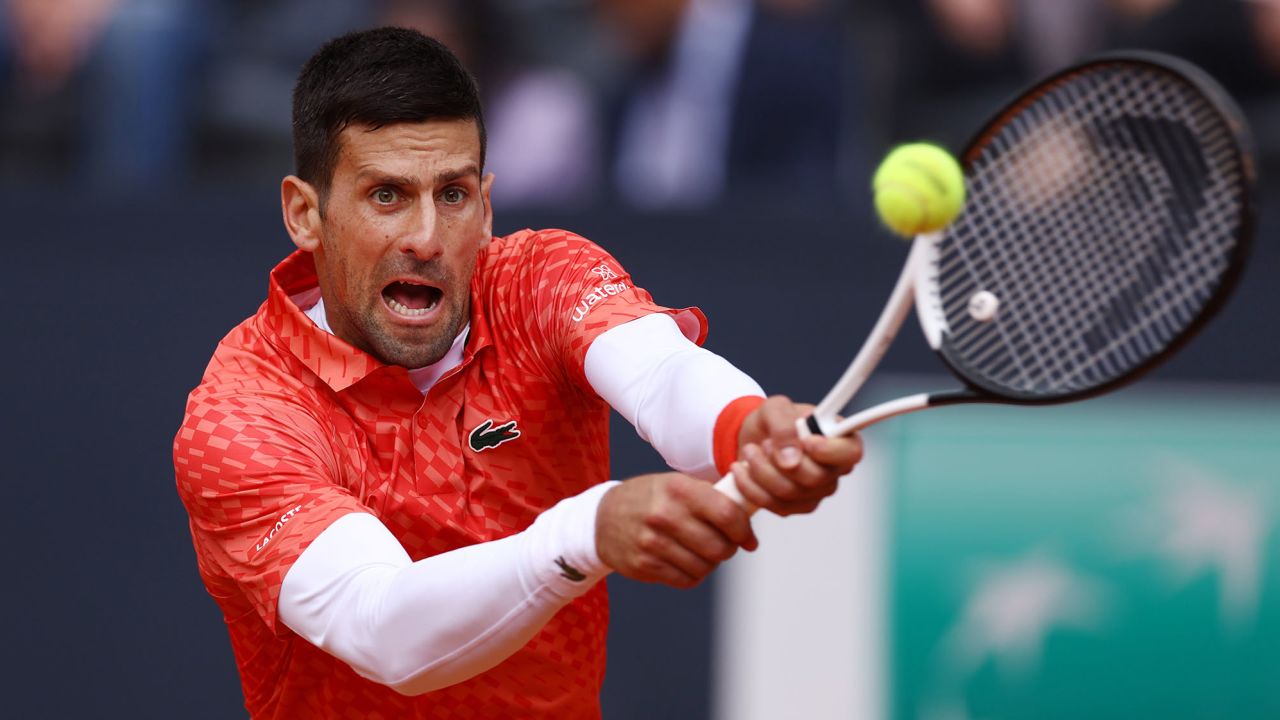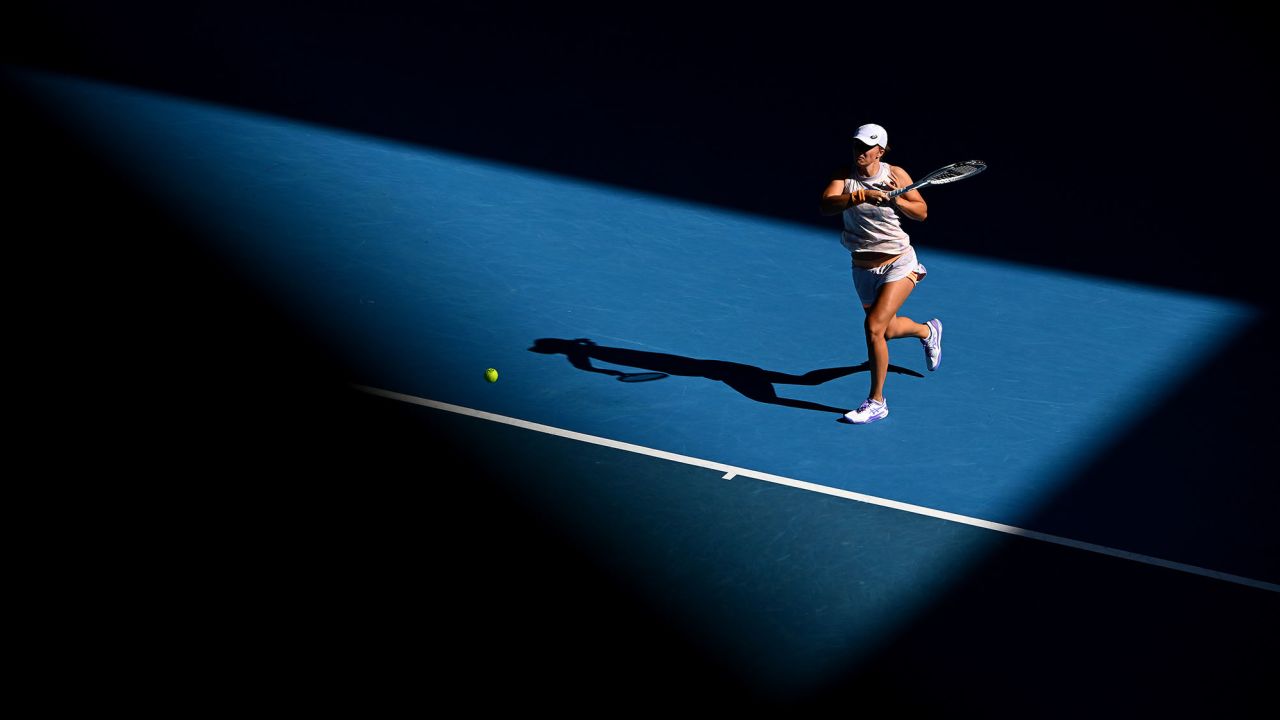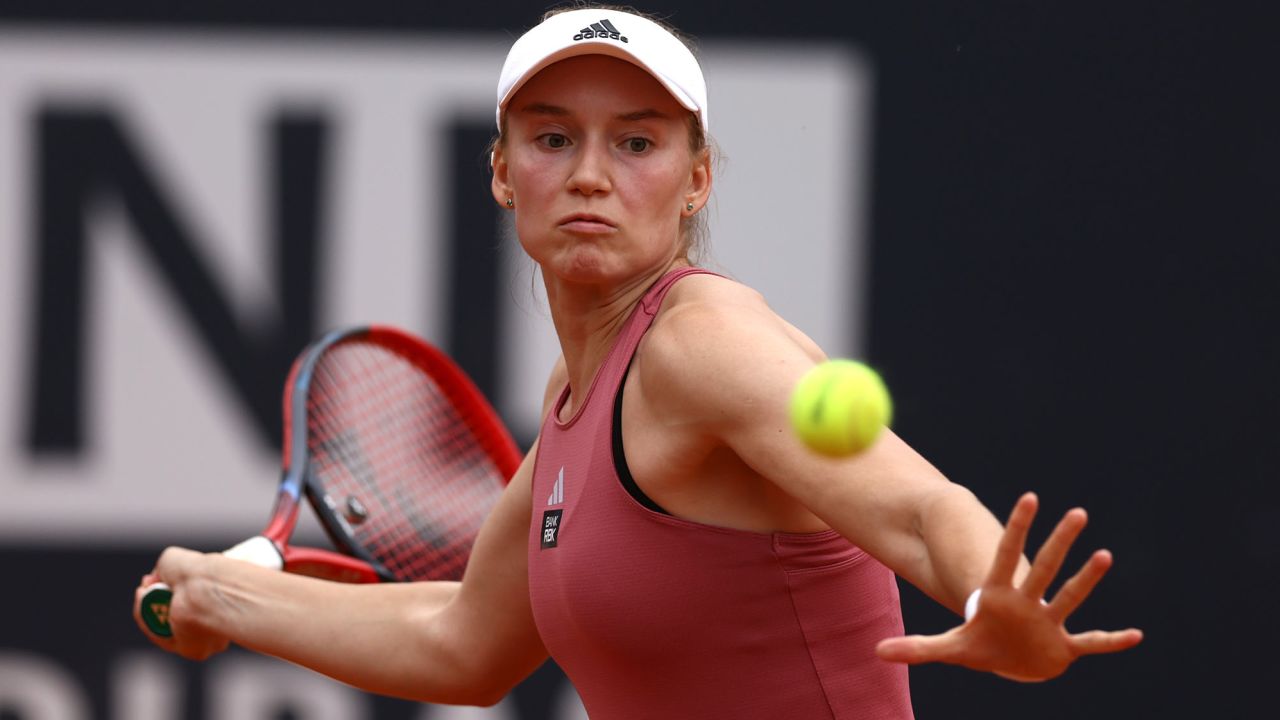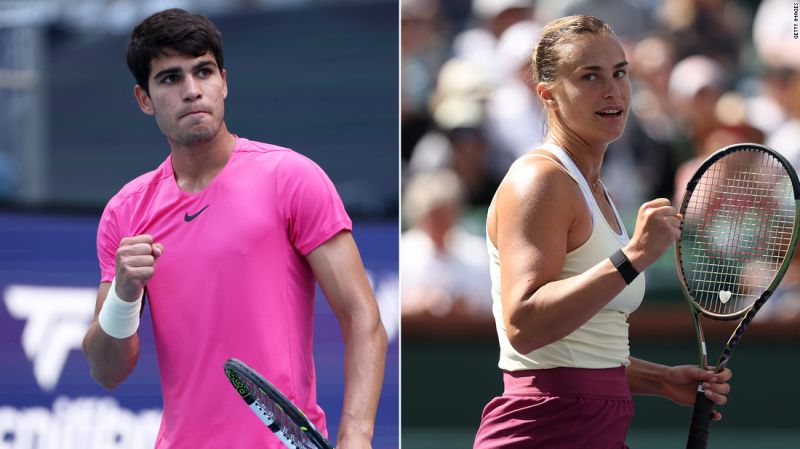CNN
—
It felt like the beginning of the end of an era at the French Open when Rafael Nadal announced his absence from the tournament earlier this month.
Having struggled with a hip injury since the Australian Open, Nadal – a 14-time champion at Roland-Garros – is missing the second grand slam of the year for the first time since his debut in 2005.
He also announced that next year will be his last in professional tennis, which, when it comes, will be a defining moment in the history of the clay-court major – a competition Nadal has dominated for so long.
For now, there is the more pressing matter of who will win this year’s French Open in Paris when it gets underway on Sunday and concludes on June 11.
In the United States, the French Open is available to watch on NBC, streaming service Peacock, Tennis Channel, and Bally Sports. In European territories except France, the tournament is aired on Eurosport.
A list of international broadcasters and the full draw are available on the French Open website.
Top seed Carlos Alcaraz is a clay-court specialist and was unbeaten in 12 matches before suffering a shock defeat against world No. 115 Fábián Marozsán at the Italian Open.
If he is to capture his second grand title, the 20-year-old may have to get past Novak Djokovic – a two-time French Open champion – in the semifinals.
Victory in Paris would see Djokovic win his 23rd grand slam title and overtake Nadal at the top of the men’s all-time list, further staking his claim as the greatest male tennis player in history.
But the Serbian, victorious at the Australian Open at the start of the year, has struggled this clay-court season, failing to get beyond the quarterfinals of three events and missing another with an elbow injury.
“A new generation is here already,” Djokovic said after his quarterfinal defeat at the Italian Open.
“I mean, Alcaraz is No. 1 in the world from [May 22]. Obviously, he’s playing amazing tennis. I think it’s also good for our sport that we have new faces, new guys coming up. It’s normal.
“We’ve been saying this for years, that we can expect it to come, that moment to come when you have kind of a shift of generations.”

Djokovic’s failure to win a title since the Australian Open and Alcaraz’s surprise defeat in Rome perhaps gives hope to some of the other challengers in Paris this year.
Daniil Medvedev – last week’s Italian Open champion – is on an excellent run of form and has the benefit of being on the opposite side of the draw to Alcaraz and Djokovic.
Casper Ruud and Stefanos Tsitsipas, both former French Open finalists, will be hopeful of having deep runs, while sixth seed Holger Rune looks to be a star for the future having ousted Djokovic at the Italian Open.
In the women’s draw, two-time French Open champion Iga Światek is the favorite, though she has not displayed the same dominance on clay compared to last year, when she cruised to the title as part of a record-breaking, 37-match winning streak.
Aryna Sabalenka and Elena Rybakina, ranked second and fourth in the world respectively, have emerged as fierce rivals to Światek at the top of the women’s game and both have beaten the Polish star in the past month.

That trio, which some are now calling the “Big Three,” have triumphed at the past four grand slams: Światek at the French and US Opens, Rybakina at Wimbledon and Sabalenka in Australia.
“The conditions in Paris should favor Światek, she feels comfortable there and is proving she is definitely playing at a high level of tennis,” said Eurosport expert and former world No. 7 Barbara Schett ahead of the tournament.
“I think it’s good for Iga to have these two players [Sabalenka and Rybakina] that can challenge her and make her stay at the No. 1 spot,” Schett added.
Światek, who has spent more than a year as world No. 1, could be dethroned by Sabalenka at the top of the rankings after the French Open. She begins her campaign against Spain’s Cristina Bucșa.
Women’s tennis has been blighted by controversies in recent weeks, placing renewed focus on the scheduling of the women’s draw at Roland-Garros.
At the Madrid Open: ball girls on the main court were instructed to wear crop tops and short skirts and players in the doubles final were not permitted to speak after the match.
The ball girls’ skirts were later changed for long shorts – although the crop tops remained – and tournament organizer Gerard Tsobanian said it was “unacceptable” not to give the finalists the chance to speak to fans at the end of their match.
Then at the Italian Open, the final between Rybakina and Anhelina Kalinina was rescheduled due to rain and didn’t start until 11 p.m. local time on Saturday – a situation former player Rennae Stubbs described as an “abomination.”

The WTA, however, said that moving the match later was the “right thing to do” in a statement to Reuters.
Questions about scheduling may persist in the coming weeks given the way night sessions were scrutinized at last year’s French Open.
Only one of the 10 games scheduled as a night session in 2022 featured a women’s match – the second-round contest between Alizé Cornet and Jelena Ostapenko. Tournament director Amelie Mauresmo explained how men’s tennis has more “appeal” than the women’s game, to which Światek responded by labeling Mauresmo’s comments “disappointing.”
There is no shortage of star appeal at this year’s French Open.
Alongside the talented trio of Światek, Sabalenka, and Rybakina, the likes of Jessica Pegula, Caroline Garcia, Coco Gauff and Ons Jabeur – none of whom have won a grand slam – will be vying for the title at Roland-Garros.

